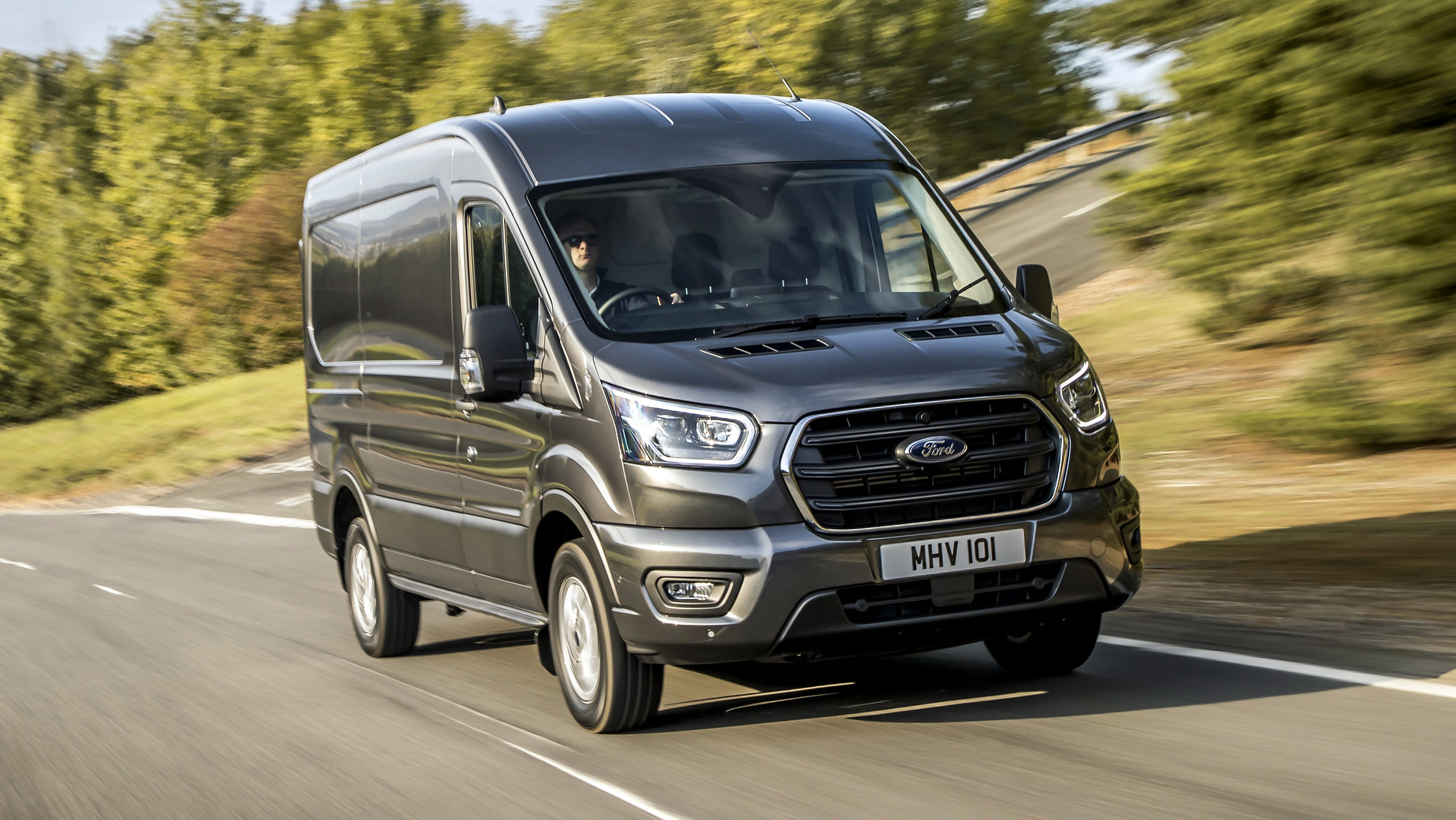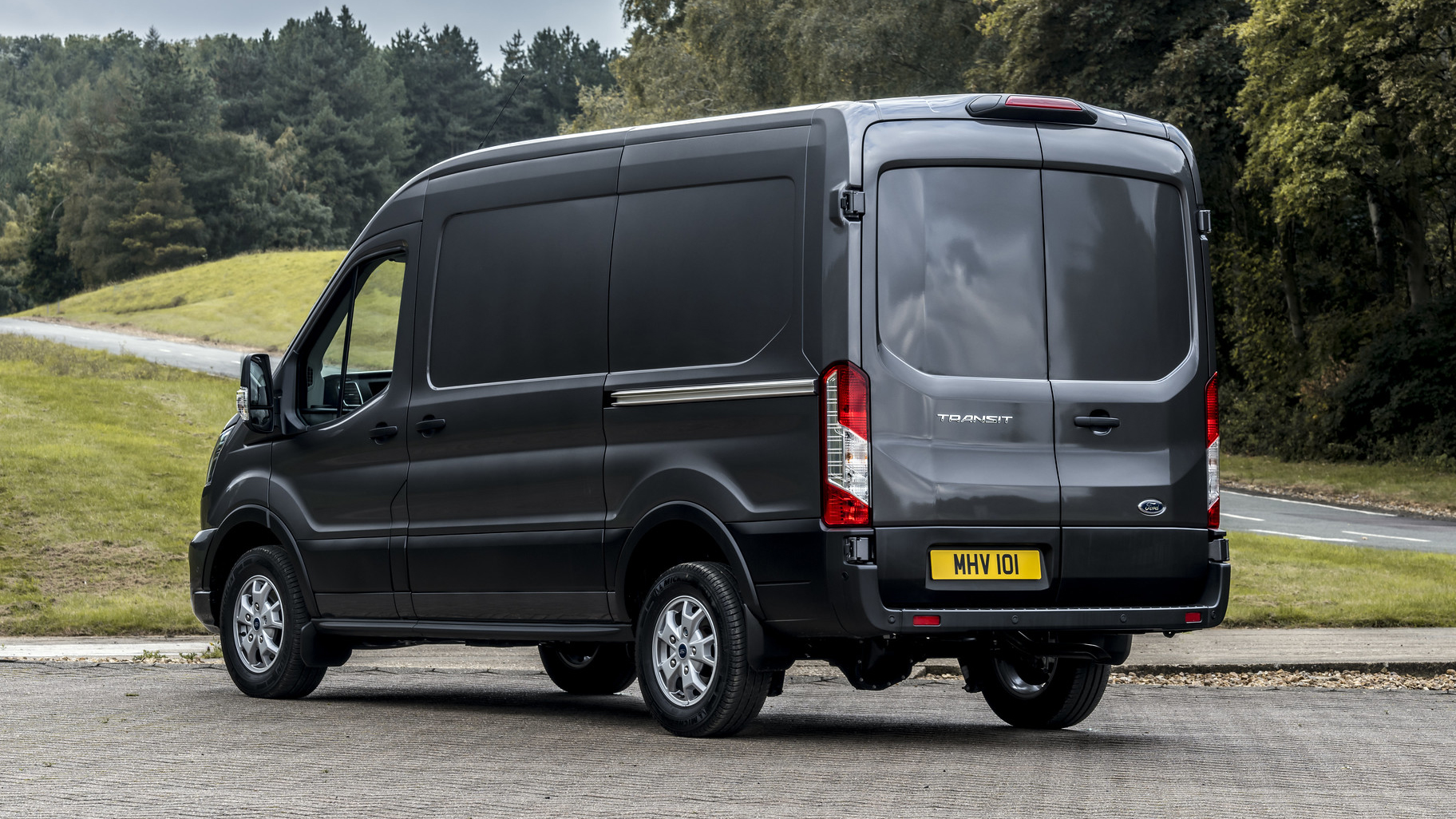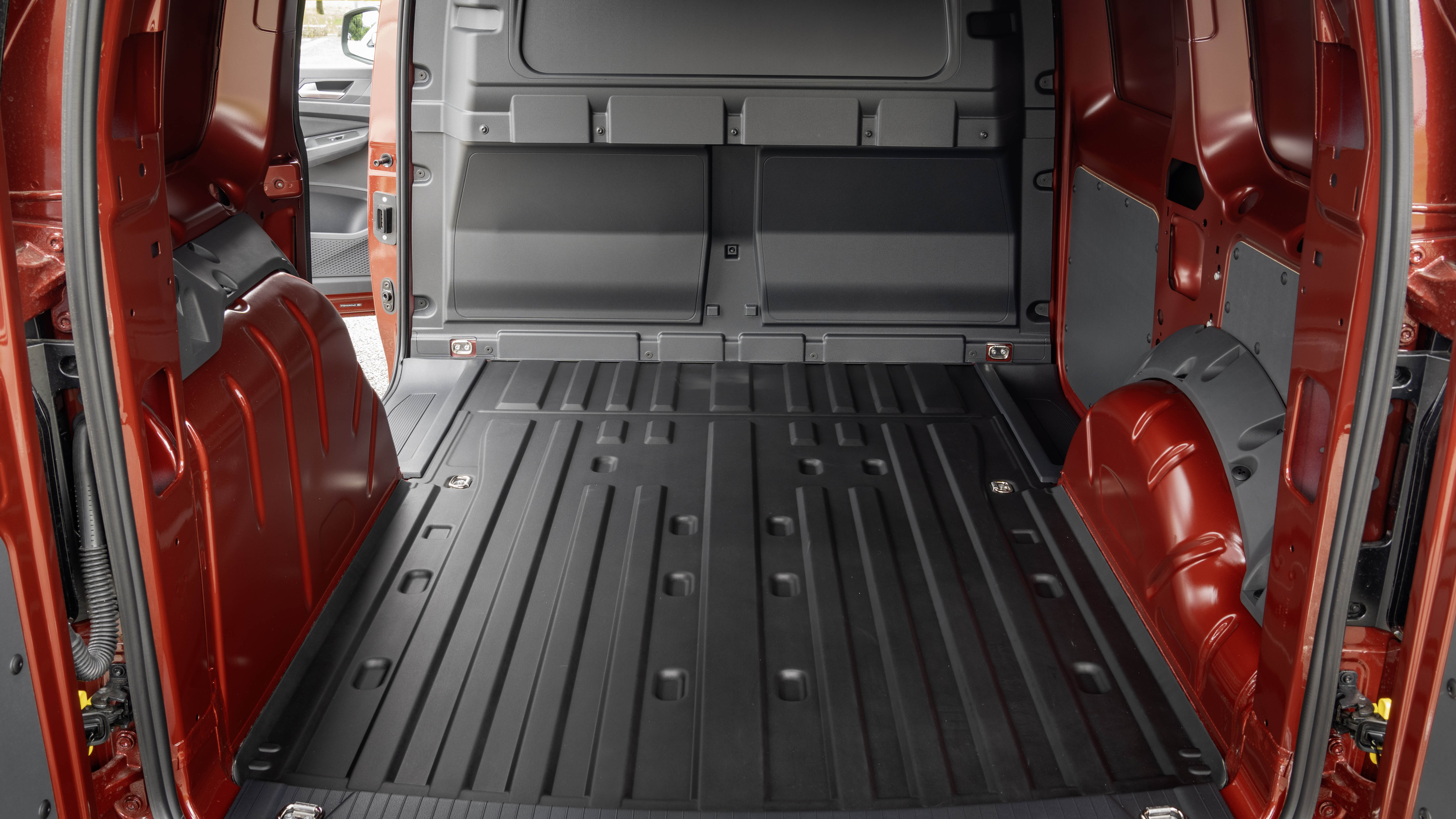
Good stuff
As recognisable as four-wheeled transport gets, and as dependable, too
Bad stuff
Ubiquity won't be everyone's cup of tea. Nor will Daily-Star-on-the-dashboard connotations
Overview
What is it?
Why, it’s only one of the biggest names in motoring. In more ways than one. We’d file the Transit in the same folder as the Mini, VW Beetle and original Land Rover – a shape that almost everyone, regardless of car knowledge, can identify in seconds.
It’s now 60 years old too, a feat not too many other vehicles can claim. While no longer made in Britain (as of 2013), it still feels like a British icon, and its name feels as synonymous with ‘van’ as Hoover does with ‘vacuum cleaner’. A world without a Transit would feel like a very discombobulated world indeed.
Is it still as popular as ever?
As you’d expect, it’s comfortably Europe’s best-selling van. But it’s also America’s too, having launched there in 2013 to replace the Ford E-series. No nation is impervious to the allure of a Tranny.
Aren’t there different sizes of Transit these days?
There are. In fact, we could probably fill the rest of the BBC’s server space listing the variants of Transit available. There’s the weeny Transit Courier and Transit Connect (think post van size), the less weeny Transit Custom (ice cream van) and then the plain old traditional Transit that’s the biggest of the bunch. Pretty much all of those offer different wheelbases and roof heights though, so the possibilities really are endless.
Give me some more details on the small Transits…
The new Courier is the cheapest of all the Transits, with prices starting at £16,200 excluding VAT. Underneath it’s based on the same platform as the Ford Puma, so it’s a hoot to drive and can be had with either a 1.0-litre EcoBoost three-cylinder petrol engine or a 1.5-litre EcoBlue four-pot diesel. There’s just one wheelbase and height option for that too, but you’ve still got four trim levels to choose from.
There’s a new Transit Connect too, which starts from £23,500 excluding VAT and is essentially a rebadged VW Caddy, as is immediately obvious from the cabin. It gets short- and long-wheelbase versions, as well as a mighty clever Kombi version that adds a clever folding rear bench so you can switch between work van and family car with consummate ease. Underneath you have the option of a 2.0-litre diesel engine in two different guises or a petrol plug-in hybrid setup that can provide up to 73 miles of all-electric range.
Right, I’ll have the same info on the Transit Custom now…
You are demanding, aren’t you? The Custom is the classic mid-size Transit. These days its styling is more aggressive than ever and actually quite attractive to our eyes. Prices start from £32,350 minus VAT and you can have it with three, five or six seats (we’re not including the nine-seat Tourneo Custom here, because if we start on each Transit’s equivalent people-carrying Tourneo then we’ll be here for months). Many different diesel engine options are available, plus a plug-in hybrid which mates a 2.5-litre petrol engine with an 11.8kWh battery for up to 35 miles of e-range.
The ultimate Custom is the bodykitted MS-RT version, but you can also have it in proper workaday spec with plastic bumpers and steel wheels. A high roof version will be along soon, but at the time of writing you can only have a sub two-metre roof and two different lengths of wheelbase.
And what about the full-size Transit?
The big boy starts at £40,375 and comes in all manner of wheelbases and heights or – should you wish – with a naked chassis out back in order to accommodate a flat bed, tipper section or whatever else takes your fancy. You can have single or double cabs or (of course) a minibus layout. If there isn’t a Transit to suit your job, do you even have a real job? Then there's the trim levels, including the lifestyle-friendly Active and Trail variants.
I think I need a lie down...
It's a lot to take in, isn't it? Ready for more?
Ready.
In Europe, your engine choice is almost exclusively four-cylinder turbodiesels, ranging from 104bhp to 168bhp, and putting their power down through front, rear or all-wheel drive. A six-speed manual gearbox sits in most, but you can go automatic if you wish, courtesy of eight- or 10-speed transmissions. There’s also a mild hybrid option. Fancy.
What else do I need to know?
You don’t get to the ripe old age of 60 without moving with the times, and so there’s a whole suite of active safety and clever cruise control systems on offer in pretty much all of the Transits. Big screens too. Oh, and if you’re looking for something a little eco-friendlier there are all-electric versions of the Courier and Custom on the way, plus a full-size E-Transit already on sale. Click here for the full review of that.
In any case, this here is the Top Gear test of all things Pure Van, and if something wearing a Transit badge can no longer deliver on that front, then we’re all screwed.
What's the verdict?
The Transit feels as British as bangers and mash or a pint of bitter and is just as iconic for many people. The fact it hasn’t been built in Britain for a decade is almost beside the point. Here’s a pillar of the motoring world, one we really need to rely on in troubled times. Both to deliver our parcels and to generally make us feel alright about life.
Good news: it does both jobs with aplomb. It’s a marvellous thing, one only denied perfection by its utter ubiquity and some outdated clichés about the chosen reading matter of its drivers and its placement atop the dashboard.
Ignoring a Transit when you’re buying a van is like ignoring a Golf when you’re buying a car (well, before the Mk8 Golf arrived). Or a kebab when post-nightclub food shopping. Do so at your peril.
The Rivals
Trending this week
- 2026 TopGear.com Awards
"Drives like a BMW ought to": why the iX3 is Top Gear's 2026 Car of the Year
- Car Review
Ferrari 849 Testarossa









